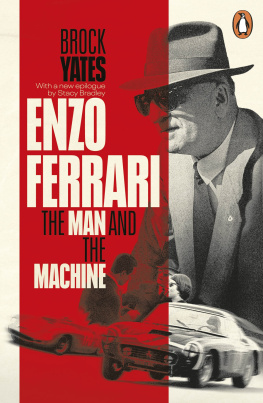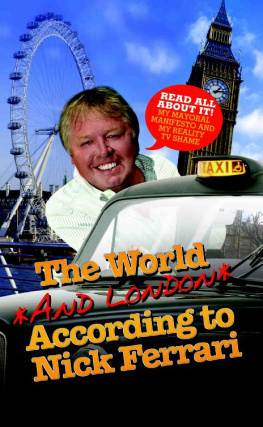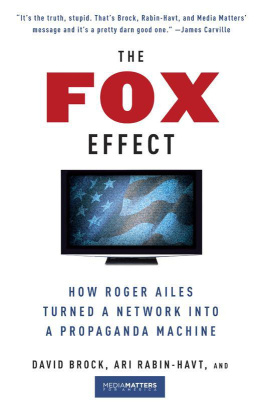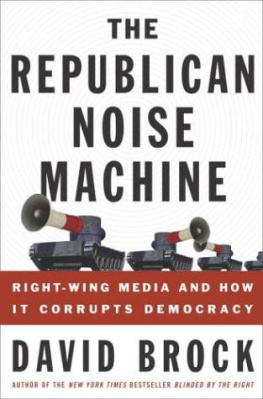Brock Yates - Enzo Ferrari : the man and the machine
Here you can read online Brock Yates - Enzo Ferrari : the man and the machine full text of the book (entire story) in english for free. Download pdf and epub, get meaning, cover and reviews about this ebook. year: 2019, genre: Detective and thriller. Description of the work, (preface) as well as reviews are available. Best literature library LitArk.com created for fans of good reading and offers a wide selection of genres:
Romance novel
Science fiction
Adventure
Detective
Science
History
Home and family
Prose
Art
Politics
Computer
Non-fiction
Religion
Business
Children
Humor
Choose a favorite category and find really read worthwhile books. Enjoy immersion in the world of imagination, feel the emotions of the characters or learn something new for yourself, make an fascinating discovery.
- Book:Enzo Ferrari : the man and the machine
- Author:
- Genre:
- Year:2019
- Rating:5 / 5
- Favourites:Add to favourites
- Your mark:
- 100
- 1
- 2
- 3
- 4
- 5
Enzo Ferrari : the man and the machine: summary, description and annotation
We offer to read an annotation, description, summary or preface (depends on what the author of the book "Enzo Ferrari : the man and the machine" wrote himself). If you haven't found the necessary information about the book — write in the comments, we will try to find it.
Enzo Ferrari : the man and the machine — read online for free the complete book (whole text) full work
Below is the text of the book, divided by pages. System saving the place of the last page read, allows you to conveniently read the book "Enzo Ferrari : the man and the machine" online for free, without having to search again every time where you left off. Put a bookmark, and you can go to the page where you finished reading at any time.
Font size:
Interval:
Bookmark:

PENGUIN BOOKS
UK | USA | Canada | Ireland | Australia
India | New Zealand | South Africa
Penguin Books is part of the Penguin Random House group of companies whose addresses can be found at global.penguinrandomhouse.com.

First published in Great Britain by Doubleday, a division of Transworld Publishers Ltd., 1991
This edition published by Penguin Books, 2019
Copyright Brock Yates, 1991
Epilogue copyright Stacy Bradley 2019
The moral right of the author has been asserted
Image credits: Getty Images, AKG Images and Ullstein Bild/Topfoto
ISBN: 978-0-241-97717-0
This ebook is copyright material and must not be copied, reproduced, transferred, distributed, leased, licensed or publicly performed or used in any way except as specifically permitted in writing by the publishers, as allowed under the terms and conditions under which it was purchased or as strictly permitted by applicable copyright law. Any unauthorized distribution or use of this text may be a direct infringement of the authors and publishers rights and those responsible may be liable in law accordingly.

The autoroute to Beaune lay ahead, an inkblot of asphalt. Behind him a few remaining lights of Lyon flickered in the rearview mirror as the big Renault sedan settled into a steady lope at 125 mph. He would be in Paris before dawn.
He was a driver. At eighty-two years, he still handled an automobile with the same authority and resolve that had carried him to three victories at Le Mans. Twenty-four hours. Around the clock. Those races were his specialties. He had never been a sprinter, never particularly fast in the twitchy, pitiless single-seat Grand Prix machines. But give him a full-fendered Alfa Romeo or Ferrari sports car and he could run like a marathoner, hour after hour, kilometer banked on kilometer, crushing the opposition with his sheer grit and the reserves of muscle coiled in his compact bricklayers body.
He checked his watch. The hands were slipping toward three oclock on the morning of August 14, 1988. It was a drive he had made a hundred times; Modena to Paris, now a headlong rush along the table-smooth Italian autostradas and the French autoroutes. For forty years, the mission had been the same. The central theme had been the cars; those low-slung beasts that had caused him so much joy and grief. Up and down the autoroutes, crossing and recrossing the spine of the Alps like some crazed tourist, back and forth over the bleak expanse of the Atlantic, always with one singular purpose the glorification and enrichment of the most supremely outrageous, over-powered and oversexed automobiles of the modern era, the crimson bolides of Modena and Maranello the magic machines of Enzo Ferrari.
Ferrari. There had been times, often lasting months, even years, when he had wished he had never heard the name, but too much time had passed for that. Seventy years, he mused. He had known this incredible man since 1918, when both had been young veterans poking around the postwar automobile business in Milan and Turin. Ferrari had made Luigi Chinetti a rich man while making himself richer. Ferrari had made him important and respected, while elevating himself to world fame and becoming a demigod to the poseurs and nouveaux who seemed prepared to sell their firstborn into white slavery in order to obtain one of his automobiles.
It had all been an insane aerobatic display of emotion and ego warfare and now he was tired of it all. They had dueled too long and, if a winner had to be declared, it would have to be Ferrari. But did he not always win? Did he not always prevail, sometimes coming off the mat after repeated, bloody knockdowns to land a knockout punch? They had sparred many times, hugging between rounds, and he had often scored well, but now it was over, and the old warriors had fought their last fight. There would be no more confrontations, no more angry words, no more window-rattling arguments, no more lawsuits, threats, walkouts or vile insults, all generally forgiven or forgotten. Still, Ferrari towered over his life, having given it purpose and meaning, and for this he knew all the madness had been worthwhile. Yes, Ferrari had been at the center of it all.
Both men were hard, unyielding, classic Italians, easily tempted to let a relationship flare into wild boasts, vicious insults and bare-faced fabrications. For all the years he had known Ferrari, business negotiations with him remained an elaborate, protracted drama of artful parlays, suspended agreements, temper tantrums, operatic claims of impending bankruptcy, social ruin, family shame, incurable disease and violent death. It was in this Byzantine atmosphere that Ferrari had thrived and men like Chinetti had either learned to survive or been summarily defeated. At the core of any dealings with him had been the money preferably Swiss francs or American dollars. Winning automobile races had been his obsession, but only if the money was right.
As the carefully preened image of Enzo Ferrari had risen to world prominence, Chinetti and those other old associates who had been with him since before the war had faded into the shadows. Ferrari shared the spotlight with no one, not even the man who had helped create a market for his automobiles larger and more lucrative than anyone could have imagined. Chinetti understood the crazed, comic-opera politics of the factory as well as anyone. On his numerous trips to Maranello he learned when to flatter, when to threaten, when to simper, when to sulk and when to primp and pamper the soaring ego of the man who rivaled the Pope as the most famous and popular personage in all of Italy.
This contentious friendship of the old warriors had often stretched to the point of shredding, yet the bond could not be broken. As for Chinetti, he came to know Ferrari too well to understand his chameleon-like public persona, his ability to orchestrate the press and the public, to artfully and floridly articulate positions perfectly tailored for his audience, to play the lovable, beleaguered, poverty-stricken patriarch one minute and the ruthless, egomaniacal despot the next. He had seen the public Ferrari, the regal old don who oozed respectability, as well as the private Ferrari, the ribald, belching, farting, cursing, bragging, hectoring Modenese paesano who bore his lower-class background like a caste mark on his forehead. He knew him as the consummate manipulator of men, especially of the racing drivers who had driven the vermilion cars of the Scuderia, sitting in splendid isolation in Maranello monitoring his teams successes and failures by telephone, telex and television but not attending a single automobile race for the last thirty years of his life.
There was no question that he was uncomfortable in large crowds, and as the years passed, his public appearances were restricted to flawlessly choreographed press conferences during which he traded verbal blows with the fickle and often contentious Italian sporting press. His true friends could be counted on the fingers of one hand and included a few longtime, utterly faithful business associates. Beyond that perimeter he tended to a flock of supplicants, sycophants, customers, adoring fans and a legion of racing drivers with baronial aloofness, handing out favors, slapping wrists, administering punishments and settling arguments from an invisible throne.
Font size:
Interval:
Bookmark:
Similar books «Enzo Ferrari : the man and the machine»
Look at similar books to Enzo Ferrari : the man and the machine. We have selected literature similar in name and meaning in the hope of providing readers with more options to find new, interesting, not yet read works.
Discussion, reviews of the book Enzo Ferrari : the man and the machine and just readers' own opinions. Leave your comments, write what you think about the work, its meaning or the main characters. Specify what exactly you liked and what you didn't like, and why you think so.









